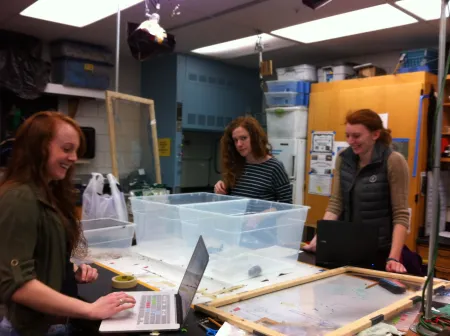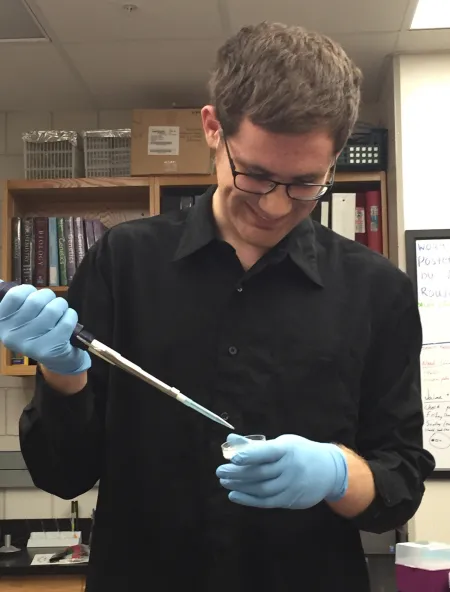BIOL 290 is for students just starting out in research, or students who have already taken the required BIOL 302 research. You can take it for 1, 2, or 3 credits. This can be taken by first-year students, sophomores, juniors, and seniors.
Students may have an independent small project or collect data in support of other lab members, depending upon the research group.
BIOL 290 before 302 - Most faculty prefer to start students with a single credit of 290, translating to a commitment of roughly 3 hours a week. Motivated first-year students may be accepted into a lab in their first spring term. BIOL 290 can be a great way to get introductory experience in several different research labs.
BIOL 290 after 302 - Students can opt for additional BIOL 290 research after they have completed their 302 requirement. Students can choose to remain in the lab where they completed their 302 research or choose to try research in a different lab.

